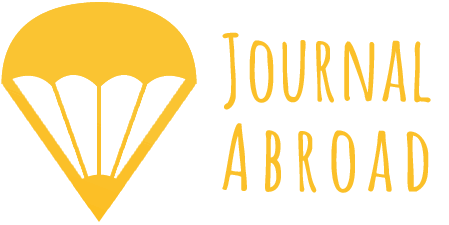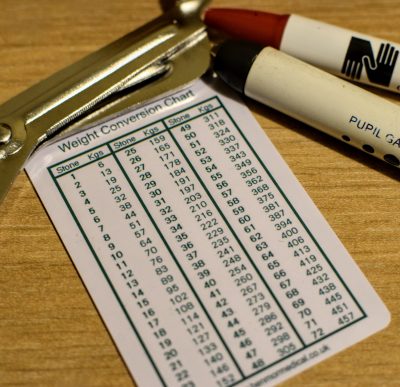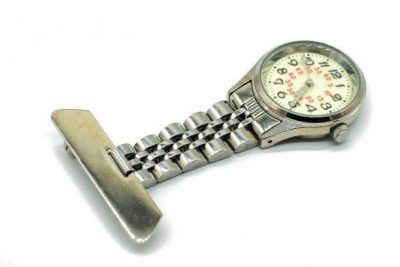My husband and I just moved to the UK from the United States. I’ve been a nurse in the States for 5 years and just started working for the public health care system in the United Kingdom. From day one I’ve tried to keep a collective list of nursing and healthcare differences in the UK. For all you medical people out there, I thought you might find this intriguing! Here’s what I got so far!
1. NHS
The UK’s public healthcare is the National Health Service founded in 1948. When I started working, I was surprised that I did not have to clock in and clock out with my badge. I just get paid for my 37.5 hours a week. I would get paid more obviously if I wanted to work overtime though. When you pick up an extra shift, it’s referred to as a “bank shift”. On the other hand, if I stay over at the end of the day, I do not get that time added to my paycheck but recorded in a log book. When I have time accumulated of working extra I can use that time to leave early.
2. Adult, Child, Mental Health vs. Learning Disability Nurses
When you go to nursing school in the UK, instead of rotating through all of these specialties, you choose one of these before you apply. The degree is 3 years here. You do not have to go to nursing school first before you apply to the midwifery program either.
3. A&E
Accident and Emergency. This would be our Emergency Department.
4. Theatres
The Operating Room. Be sure to check out more detailed OR differences from a post here!
5. Ward
A ward is a nursing floor. Most of the wards are set up like Pre-op or PACU areas at home with only curtains between the rooms. There is a newer ward at my hospital that has individual rooms though. Where I work, the wards are named after villages around the area. I think this is cute, but it does not help identify what type of ward it is. Some examples of the names are Copthorne, Buckland, Abinger, Nutfield…just to name a few. But who would know that Buckland is a Urology unit?!
6. Sisters and Matrons
There is a hierarchy of nurses here. I am a Band 5 level nurse and if you have a registered nursing PIN, that is where you start. If you are a Healthcare Assistant/Nursing Assistant, you are a Band 2 up to 4. The bands go up to 9. When you get to a band 6 you are a “Sister”. So one day I could be Sister Brooke! I still get confused by most of it honestly. I do know that the Sister term comes from when nursing care was done by nuns. I asked a male nurse if I should call him Brother, but you don’t have to say anything in front of their name. They are just referred to as a Charge Nurse. On the wards, your uniform changes based on what Band you are.
7. Tunic and Trousers
Nurses don’t wear scrubs but call them tunic and trousers! You can also choose to wear the dress version. With the NHS, the hospital provides you with your uniform. I think this is pretty awesome. I was provided with 2 sets of the nurses uniform only, because I work in the operating room. We wear a different uniform that are the same scrubs from home and washed in-house. When you work in theatres, the first pair of shoes are given to you by the hospital too! I chose the style and size from a catalog.
8. Observations
Vital signs. You get “observations” on a patient, not vital signs. “Can I just get your observations?” (Try out saying this in your best British accent)
9. Male Catheterisation
Nurses in the UK don’t receive nursing school training on male catheterisation. To be able to do this, you must take a course given by the hospital. (Yes, the “s” in catheterisation is on purpose 🙂 )
10. Milliliters
This is the same as the US, but you don’t hear people saying “cc’s” for a measurement of fluids here. I have said this a couple of times from habit. It’s usually commented on if I say it and only heard in American TV shows.
11. Stones
A unit of measurement for the weight of a patient, even though kilograms is the proper one to use. I even received a conversion chart when I started here because it’s what patients and staff know. 1 stone = roughly 6 kilograms. “I gained half a stone in just one week.” is a phrase I heard once…how strange is this?
12. BM
This does not mean “bowel movement” here! It is “blood monitoring” which they are referring to a patients glucose levels.
13. Inco Pad
Short for an incontinence pad.
14. Brooch Tunic Fob Watch
No wrist watches allowed, but a watch that pins to your tunic (shirt). This is for infection control as the wrist watch can harbor bacteria.
15. CPR
It’s not the standard to check the parotid pulse when it comes to the CPR sequence. The rationale is that, you can waste time by trying to find it, so it’s best to start compressions if you find someone unresponsive and not breathing.
16. Paper Charting
It’s not completely all paper charting but a majority of it is! The NHS is working towards electronic health records but it’s a slow process here. The medication administration is paper charting as well. This makes me glad I work in theatres.
17. Cannula
This is what they refer to as an IV. “Do they have a cannula?”
18. Starting IV’s
When you are hired by a hospital, you also must first take a IV course before you can start any cannulas. The one at my hospital is 2 days long, followed by a test.
19. Drug Administration Test
More tests! When I applied to the hospital, I had to pass a drug calculation test before they offered me the job. This is true for everyone and other hospitals in the UK. When you are hired, you take another one before giving drugs! I work in the OR though, so I did not have to take this.
20. No Stethoscopes
Using a stethoscope is not a part of the nursing assessment here unless it’s in a specialized area I believe. It’s the doctors that mainly do this.
21. Nil by Mouth
Means “NPO”. Don’t even try to say NPO, it won’t make sense here. The sign that is hung on the bed or door is NBM. Another question they ask before a patient has surgery is “Has the patient been starved?”. It’s just a way to ask if they have been NPO for the right amount of hours before surgery.
22. Hospital Accomodation
Many hospitals provide on site accomodation. They aren’t literally connected to the hospital, but close by. The idea reminds me of nicer dormitories at college. Marvin and I would have gone with the couple accomodation but there was a waiting list, so we decided to find our own flat.
23. Hospital Library
Hospitals have libraries too! I think this is really cool. I’ve been reading the Call the Midwife collection that was made into a major BBC TV series (you can watch on Amazon Prime!). It’s about the life of a midwife in 1950’s London’s East End and real stories of her encounters.
24. Hospital Trust
Term for some NHS hospitals. It’s common to just refer to a hospital here as a “Trust” for short.
25. Supernumerary
What they call nurses that are on their training because they aren’t supposed to be counted in the staffing numbers. If you work on the wards, this is only 2 weeks.
Don’t forget to check out a list of differences specific to the Operating Room! Also the process it took to get licensed in the UK. Leave your comments and let me know your thoughts of these so far, I’d really love to hear!
Keep up with us and follow us on Instagram and Facebook as well for what we’re doing now. Or comment below!




16 Comments
Thank you so much, Brooke!! I'm a U.S. nurse studying for the Adult CBT and have a few questions you may be able to answer please: Will there be ABG questions? Will there be heart/lung sound questions? Will there be any questions at all about Peds (ex: What is the normal heart rate range a child aged 6 months - 2 years?) Thanks for your blog - I love it and it's answering so many of my questions. Patricia
Hi! It's so great to hear a fellow US nurse pursuing a UK nursing license! I don't remember having any questions pertaining to ABG's, heart and lung sounds, or anything peds related. It was pretty basic questions in my opinion and they were all multiple choice with only one question that could be correct (so much easier than NCLEX). Is there an agency or company helping you through the whole process? It's been a couple of years since I've taken it so I don't know what has changed but I was told to buy this book The Royal Marsden Hospital Manual of Clinical Nursing Procedures (Student Edition) – 7th Edition to help me prepare. I found it useful, and be very familiar with the NMC Code of Practice.
Hi Brooke! I am a freshman with a nursing major in the US and I am wanting to move to London. Would you suggest getting a degree (and if so what kind?) in the US and then getting my UK license?
A nursing degree is super useful because it's so versatile. If you are ever wanting to work in the US as a nurse I'd definitely get a BSN here first if it were me. Once you've worked at least a year as a nurse in the US I think, and you have a bachelor's degree, then you could start the process of getting a nursing license in the UK. London is a great choice and always a need for nurses!!
Skylar, The cost of university in the UK is a tiny fraction of what it costs in the US. Their programs are typically much shorter than those in the US as well. Those are things to keep in mind.
Great write up ! however you didn't mention anything about pay parity
You are definitely right! I missed that in this post and there is a significant difference! Thanks for adding
Thank you so much for this helpful information! I am graduating nursing school this semester and will be moving to Scotland this year. I will only be there for a year while my husband gets his master's degree so I'm nervous about getting a nursing job over there for such a short time. Do you know what agencies are best for Scotland specifically? Thank you so much again!
Hi, how exciting your upcoming successes and journeys! I do not know of any agencies specific to Scotland. There's a lot of information on the NMC where you would have to get registered with a nursing pin there first. https://www.nmc.org.uk/registration/joining-the-register/register-nurse-midwife/trained-outside-the-eueea/new-application/how-to-guide/ You could work as a nurse aid while you were waiting for your UK nursing pin. Hope this helps.
Hi Brooke! Loved the article! This def has peeked my interest, I plan to travel to the UK as well and work as nurse when I finish school. My question pertains to your spouse, was the agency able to sponsor him as well, How does that work based on your experience?
Hi so yes you can apply for a dependent visa with your sponsored work visa. You should be able to find all the information and requirements to apply below. We were able to send all our documents together and get our visas at the same time! https://www.gov.uk/skilled-worker-visa/your-partner-and-children
Hi Brooke! Thank you so much for writing this article it’s so informative. My husband is from the UK and I’m currently halfway through nursing school in the US. We plan to move back to the UK once I graduate. My nursing school only offers an associate’s degree. Do you know if I would need my Bachelor’s to apply for my nursing license? Also, was it difficult getting a visa? I’m debating whether to go the spousal visa route or try to get one through a hospital over there. Thank you so much!
The requirements seem to be always changing since I've joined the UK nursing register. The UK nursing degree is 3 years and at the time I joined they required the BSN. I'd honestly check with an agency such as Kate Cowhig, TTM Healthcare, or Continental nurse because they have people there that can help answer your questions and get through the red tape. The work visa was not difficult, as long as you have all the documents and waiting for it. I honestly don't know about which visa route would be better. Might be another good question for the agency to help out as they have people that know the requirements, etc. Hope this helps! Good luck with nursing school and getting over there to the UK!
Hi! I stumbled on this post casually when browsing the internet for some related topics, and as a nurse from Europe working in the UK for 6 years I feel I need to point out few things: - A&E: we also call it emergency department or casualty (old fashioned term). All three are universally understood. - Wards: most wards in the UK have four-bedded single-sex rooms with curtains in between, plus few cubicles (individual rooms) for infection control or bereavement purposes. Oncology units usually tend to have more cubicles. Not all hospitals name their wards, some just give them numbers (e.g. Ward 23, Ward 15...) or other labels (e.g. Ward 5 on level B would be B5 and so on). - Tunics and trousers: those are the uniforms worn in the wards. Most people that work in A&E, critical care or theaters wear scrubs as well. The difference lies in whether they are nominative or not :) - CPR: Current guidelines by the Resuscitation Council do indicate checking a pulse before starting CPR. The idea is that once you have established the scene is safe, you should be able to determine for signs of life under 10s, and that includes checking the carotid pulse. However, if it is clear that the patient is in arrest, just go for CPR straight away. - Trusts: A NHS Trust is an organisation that is responsible for health services in an area. They might run one or more acute hospitals, community hospitals or just run community or mental health services or other services. One Trust does not necessarily indicate one hospital, but if you work for the NHS in primary or secondary care, you are employed by a Trust. NHS Foundation Trusts have a bit of more independence from the Department of Health and people from the community they serve can take part in their running by joining the board. And this is England. Because NHS can be used as an umbrella term to indicate public health in the whole UK, there are actually NHS England for England, NHS Wales/GIG Cymru for Wales, NHS Scotland for Scotland and HSCNI for Northern Ireland (because the UK is a "country of countries", but not a federal country like Germany, Austria or the US). There are new standards out for nursing students, so that during their training at the University, they get competences for IV drug administration, ECGs, Catheterisation and other procedures. That will remove the requirement for in-house courses by the hospitals and will enable better skill transfer between workplaces.
Wow thanks for all the insight especially from a nurse working there for a good length of time! I'm sure this can help clarify some answers other may have looking for info!
So interesting thank you! Im a Brit in California pursuing a nursing license here! But plan to return to the UK at some point for a while so am curious about the differences. More than i thought!